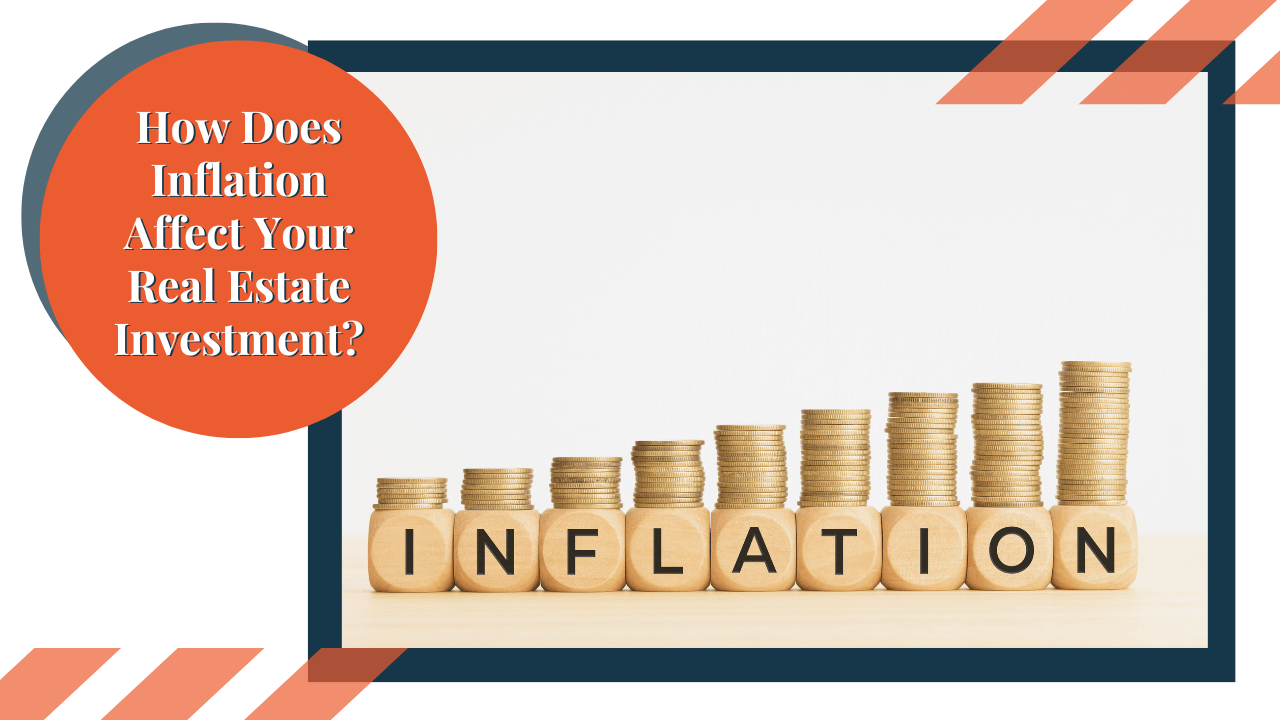Inflation – the constant and often unwelcome companion to economic growth. As the cost of living rises and the purchasing power of money falls, many investors begin to feel the pinch. But what about real estate investments? How does inflation impact the world of property and what can savvy investors do to stay ahead of the curve?

To understand the relationship between inflation and real estate, let’s first define what we mean by inflation. In short, inflation is a sustained increase in the general price level of goods and services in an economy over a period of time. It’s measured as an annual percentage increase in the Consumer Price Index (CPI), which tracks the price of a basket of goods and services.
Now, when it comes to real estate, inflation can have both positive and negative effects. On the one hand, inflation can lead to increased property values and rental income as the prices of goods and services rise. For example, if a rental property generates $1,000 per month in rent, a 3% annual inflation rate could translate to a $30 monthly increase in rent. That’s an additional $360 per year in rental income, simply due to inflation.
On the other hand, inflation can also increase the costs associated with owning and maintaining a property. For instance, if construction materials, labor costs, and other expenses rise with inflation, the cost of renovating or maintaining a property could also go up. This could offset some of the gains from increased rental income or property values.
So, how can real estate investors protect themselves from the negative effects of inflation? Here are a few strategies to consider:
-
Long-term leases: By locking in tenants with long-term leases, investors can ensure a steady stream of rental income even as inflation rises. This can help offset increased costs associated with owning and maintaining the property.
-
Regular rent reviews: Regular rent reviews can help keep rental income in line with inflation. This can be especially important for properties with shorter-term leases.
-
Investing in high-growth areas: Areas with high demand and limited supply are more likely to experience increased property values and rental income, even in the face of inflation.
-
Diversification: Spreading investments across different types of property and geographic regions can help mitigate the risks associated with inflation. This can include investing in commercial, industrial, or residential properties in different cities or states.
-
Using debt wisely: While debt can be a useful tool in real estate investing, it’s essential to use it wisely. Adjustable-rate loans, for example, can become more expensive if inflation rises and interest rates increase. Investors should aim to secure fixed-rate loans whenever possible.
In conclusion, inflation can have both positive and negative effects on real estate investments. While it can lead to increased property values and rental income, it can also increase the costs associated with owning and maintaining a property. By understanding the relationship between inflation and real estate, investors can take steps to protect themselves from the negative effects of inflation and position themselves for success in a rapidly changing economic landscape.





